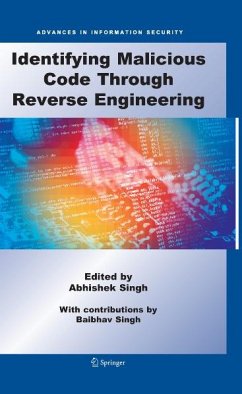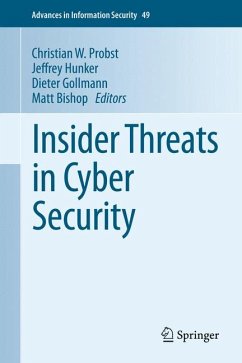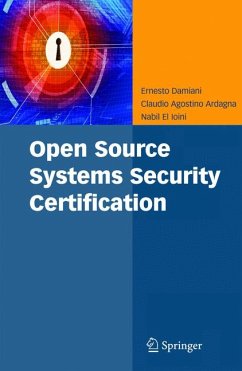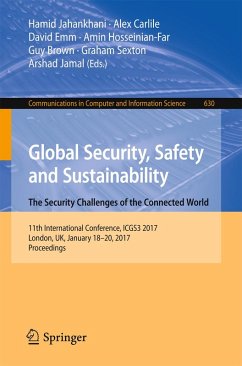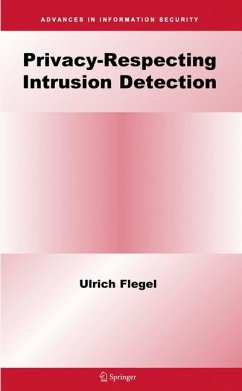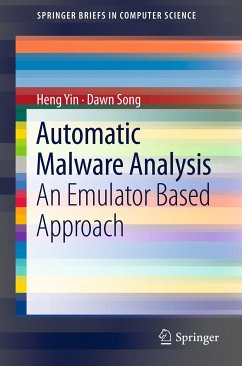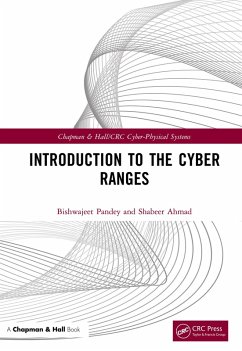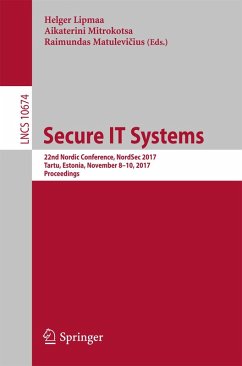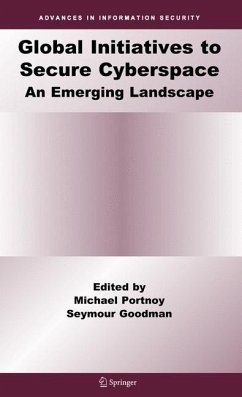
Global Initiatives to Secure Cyberspace (eBook, PDF)
An Emerging Landscape
Redaktion: Portnoy, Michael; Goodman, Seymour
Versandkostenfrei!
Sofort per Download lieferbar
72,95 €
inkl. MwSt.
Weitere Ausgaben:

PAYBACK Punkte
36 °P sammeln!
As cyberspace continues to rapidly expand, its infrastructure is now an in- gral part of the world's economy and social structure. Given this increasing int- connectivity and interdependence, what progress has been made in developing an ecosystem of safety and security? This study is the second phase of an initial - tempt to survey and catalog the multitude of emerging organizations promoting global initiatives to secure cyberspace. The authors provide a breakdown and analysis of organizations by type, - cluding international, regional, private-public, and non-governmental organi- tions. Concl...
As cyberspace continues to rapidly expand, its infrastructure is now an in- gral part of the world's economy and social structure. Given this increasing int- connectivity and interdependence, what progress has been made in developing an ecosystem of safety and security? This study is the second phase of an initial - tempt to survey and catalog the multitude of emerging organizations promoting global initiatives to secure cyberspace. The authors provide a breakdown and analysis of organizations by type, - cluding international, regional, private-public, and non-governmental organi- tions. Concluding with a discussion of the progress made in recent years, the study explores current trends regarding the effectiveness and scope of coverage provided by these organizations and addresses several questions concerning the overall state of international cyber security. The authors would like to thank Mr. Anthony Rutkowski for generously p- viding his time, guidance, and support. The authors would also like to thank the International Telecommunication Union (ITU) Telecommunication Development Sector (ITU-D) and the United States National Science Foundation (NSF Grant R3772) for partially supporting the research conducted in this study. In addition, the authors would like to thank the Georgia Institute of Technology's Center for International Strategy, Technology, and Policy (CISTP) for assistance in hosting the Cyber Security Organization Catalog, and the Georgia Tech Information Se- rity Center (GTISC) for cooperation and promotion of this study. Table of Contents 1 The International Landscape of Cyber Security . . . . . . . . . . . . . . . . . . . . . . . . . . . . . . . . . . . . . . . . . . . . . 1 2 A Brief History of Global Responses to Cyber Threats . . . . . . . . . . . . . . . . . . . . . . . . . . . . . . . . . .
Dieser Download kann aus rechtlichen Gründen nur mit Rechnungsadresse in A, B, BG, CY, CZ, D, DK, EW, E, FIN, F, GR, HR, H, IRL, I, LT, L, LR, M, NL, PL, P, R, S, SLO, SK ausgeliefert werden.




